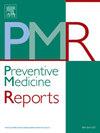模拟COVID-19大流行对爱尔兰癌症阶段迁移和超额死亡率的影响
IF 2.4
3区 医学
Q2 PUBLIC, ENVIRONMENTAL & OCCUPATIONAL HEALTH
引用次数: 0
摘要
背景:大流行期间中断了癌症治疗服务,这可能增加了开始治疗的时间。本研究旨在模拟爱尔兰假设的3个月和6个月TTI延迟对乳腺癌和非小细胞肺癌(NSCLC)分期的影响。方法从爱尔兰国家癌症登记处获得乳腺癌和非小细胞肺癌在诊断时的癌症分期分布、诊断后1至5年的净生存率以及2020年的预计癌症发病率。主要结局,从I期上升到II期和II期上升到III期的概率为95% ci。结果对于乳腺癌,假设延迟3个月和6个月后的分期转移概率在I期为0.13(0.11,0.15)和0.25(0.21,0.27),在II期为0.09(0.08,0.11)和0.17(0.14,0.21)。对于NSCLC, 3个月和6个月延迟后的分期转移概率在I期为0.51(0.49,0.53)和0.76(0.74,0.78),在II期为0.27(0.24,0.30)和0.47(0.43,0.51)。结论:该研究为乳腺癌和非小细胞肺癌患者因流感大流行而出现分期向上迁移提供了潜在证据。重要的是确定长期影响,以便制定战略以减轻不利影响并改善卫生系统对未来前所未有事件的准备。本文章由计算机程序翻译,如有差异,请以英文原文为准。
Modelling the impact of the COVID-19 pandemic on cancer stage migration and excess mortality in Ireland
Background
Cancer treatment services were interrupted during the pandemic, which potentially increased the time to treatment initiation (TTI). This study aimed to model the impact of a hypothetical three- and six-month delay in TTI on stage of breast cancer and non-small cell lung cancer (NSCLC) in Ireland.
Methods
The distribution of cancer stage at diagnosis, net survival at one to five years post diagnosis, and projected cancer incidence for 2020 were obtained for breast cancer and NSCLC, from the National Cancer Registry Ireland. The primary outcome, the probability of an upward stage-shift from stage I to II and stage II to III, is presented with 95 % CIs.
Results
For breast cancer, the stage-shift probability after a hypothetical three-month and six-month delay was 0.13 (0.11, 0.15) and 0.25 (0.21, 0.27) in stage I and 0.09 (0.08, 0.11) and 0.17 (0.14, 0.21) in stage II. For NSCLC, the stage-shift probability after three-month and six-month delays was 0.51 (0.49, 0.53) and 0.76 (0.74, 0.78) in stage I and 0.27 (0.24, 0.30) and 0.47 (0.43, 0.51) in stage II.
Conclusions
The study provides potential evidence for an upward stage migration in those with breast cancer and NSCLC due to the pandemic. It is important to determine the longer-term impacts so that strategies are developed to mitigate adverse effects and improve health system preparedness for future unprecedented events.
求助全文
通过发布文献求助,成功后即可免费获取论文全文。
去求助
来源期刊

Preventive Medicine Reports
Medicine-Public Health, Environmental and Occupational Health
CiteScore
3.90
自引率
0.00%
发文量
353
 求助内容:
求助内容: 应助结果提醒方式:
应助结果提醒方式:


